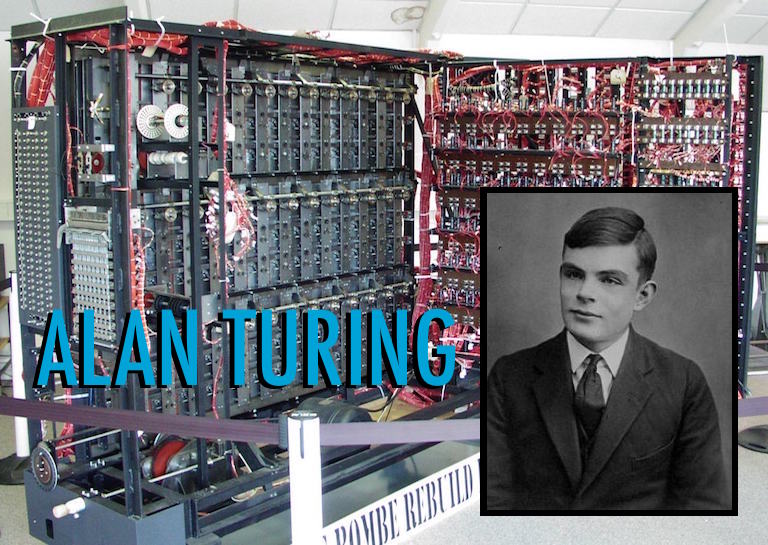Alan Turing: The Enigma - A Story of Genius and Tragedy
Alan Turing is one of the most important figures in the history of computer science and artificial intelligence. He was a British mathematician and computer scientist who played a critical role in cracking the Nazi Enigma code during World War II. But his life was far more than just his wartime contributions. Turing was also a brilliant innovator and thinker who made significant contributions to many fields, including mathematics, computer science, and philosophy.
In this article, we'll take a closer look at Turing's life and legacy, exploring his groundbreaking work in computer science and mathematics, as well as his tragic personal struggles. We'll examine his contributions to the field of cryptography, and the pivotal role he played in breaking the Nazi Enigma code. And we'll delve into the controversy and persecution that ultimately led to his tragic death.
Turing's Life and Work (H2)
Alan Turing was born in London in 1912. From an early age, he showed exceptional talent in mathematics and science. He went on to study at King's College, Cambridge, where he developed his groundbreaking ideas about computation and artificial intelligence.
Turing's most famous work was his development of the Turing machine, a theoretical model of a computer that could perform any mathematical calculation. This concept formed the basis of modern computer science, and Turing is widely considered to be the father of computer science and artificial intelligence.
During World War II, Turing worked for the British government's code-breaking unit at Bletchley Park. He played a critical role in cracking the Nazi Enigma code, which was instrumental in winning the war. Turing's contributions to this effort were invaluable, and his work laid the groundwork for modern cryptography and computer security.
Controversy and Persecution (H2)
Despite his contributions to the war effort, Turing's personal life was marked by controversy and persecution. In 1952, he was convicted of homosexuality, which was then illegal in the UK. He was forced to undergo chemical castration and lost his security clearance, effectively ending his career.
Turing's persecution and punishment were a tragic injustice, and his story serves as a powerful reminder of the dangers of discrimination and intolerance. In 2009, then-Prime Minister Gordon Brown issued a formal apology on behalf of the British government for the way Turing was treated.
Legacy and Impact (H2)
Despite the tragic circumstances of his death, Turing's legacy lives on today. His work in computer science and artificial intelligence continues to shape our world, and his ideas about computation and thinking machines have had a profound impact on our understanding of the mind and consciousness.
In addition to his contributions to computer science and cryptography, Turing also made significant contributions to the field of mathematics. He developed the concept of the Turing test, a measure of a machine's ability to exhibit human-like intelligence, and his work on the foundations of mathematics was groundbreaking.
FAQs:
Q: What was the Enigma machine?
A: The Enigma machine was a cipher machine used by Nazi Germany during World War II to encrypt messages.
Q: What is a Turing Machine?
A: A Turing Machine is a theoretical computing machine that uses a tape and a set of rules to perform calculations.
Q: What is the Turing Test?
A: The Turing Test is a measure of a machine's ability to exhibit intelligent behavior equivalent to, or indistinguishable from, that of a human.
Conclusion:
Alan Turing: The Enigma is a story of a remarkable man who made significant contributions to computer science and played a critical role in defeating Nazi Germany during World War II. However, Turing's life was cut short tragically when he was persecuted for his homosexuality. Despite the tragedy of his life, Turing's legacy lives on in the field of computer science and artificial intelligence, as well as his advocacy for LGBTQ+ rights. Turing's story is a testament to the power of innovation, perseverance, and the human spirit.
Alan Turing was a brilliant and visionary thinker who made significant contributions to many fields, including computer science, mathematics, and philosophy. His work in breaking the Nazi Enigma code was instrumental in winning World War II, and his ideas about computation and artificial intelligence have had a profound impact on our world.
But Turing's life was also marked by tragedy and persecution. His conviction and punishment for homosexuality were a tragic injustice and serve as a powerful reminder of the dangers of discrimination and intolerance.
Despite the challenges he faced, Turing's legacy lives on today, inspiring a new generation of scientists and thinkers to push the boundaries of what we can achieve with technology and innovation.



